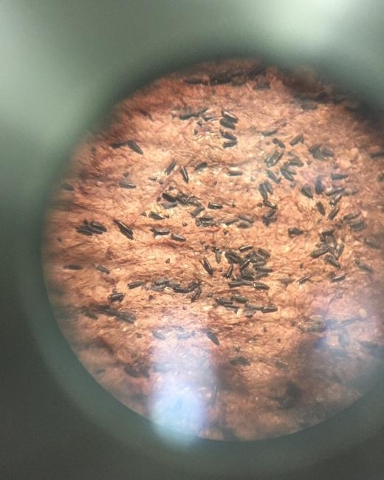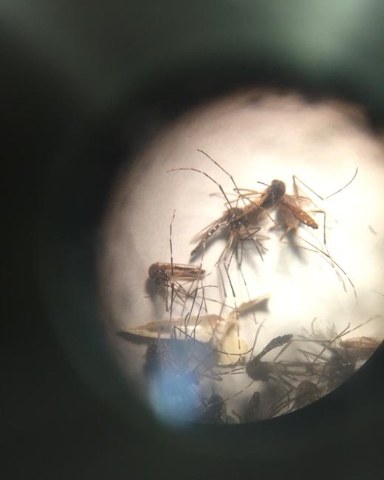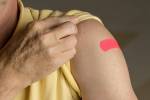World Health Organization declares Zika virus ‘public health emergency’
Update: The World Health Organization declared a "public health emergency of international concern" Monday over the Zika virus and the health problems that doctors fear it is causing.
The agency said the emergency is warranted because of how fast the mosquito-borne virus is spreading and its suspected link to an alarming spike in babies born with abnormally small heads -- a condition called microcephaly -- in Brazil and French Polynesia.
Reports of a serious neurological condition, called Guillame-Barre Syndrome, that can lead to paralysis, have also risen in areas where the virus has been reported. Health officials have specifically seen clusters of this in El Salvador, Brazil and French Polynesia, according to WHO's Dr. Bruce Aylward.
The conditions have not yet been conclusively linked to the virus.
"The experts agreed that a causal relationship between Zika infection during pregnancy and microcephaly is strongly suspected, though not yet scientifically proven," Dr. Margaret Chan, the WHO director-general said.
But the large area potentially affected by the virus, the lack of vaccines and reliable diagnostic tests, and lack of population immunity in the affected countries contributed to the need for the declaration, according to the WHO.
Chan described Zika as an "extraordinary event" after the first meeting of the International Health Regulations Emergency Committee in Geneva, Switzerland.
"Members of the committee admit that the situation meets the conditions for a public health emergency of international concern," she said. "I have accepted this advice. I am now declaring that the recent cluster of microcephaly and other neurological abnormalities reported in Latin America following a similar cluster in French Polynesia in 2014 constitutes a public health emergency of international concern."
The declaration is intended to facilitate international coordination of tracking, research and response to the virus and its effects.
Aylward was clear the Zika virus itself is, "not a clinically serious infection," but that the associated concerns prompted the move.
Last week, the agency said the virus was "spreading explosively" in the Americas, with as many as 3 million to 4 million infections possible over 12 months.
On Monday, the Pan American Health Organization added Costa Rica and Jamaica to the list of nations in the Americas where Zika virus is currently circulating. There are 28 nations currently on the list and health officials say they are monitoring the situation carefully and updating the list as necessary.
Original story continues below.
Vaccines and antibiotics have made many infectious diseases a thing of the past; we've come to expect that public health and modern science can conquer all microbes. But nature is a formidable adversary. And Zika is our newest threat, particularly to pregnant women.
New, unfamiliar and mysterious threats to our health are scary. At the Centers for Disease Control and Prevention— where we identify, on average, one new health threat each year — we work around the clock with an approach that prioritizes finding out what we need to know as fast as we can to protect Americans.
The CDC has some of the world's leading experts both in diseases spread by mosquitoes and in fetal abnormalities. We get the facts, base actions on science, tell people what we know when we know it and what we are doing to add to our knowledge, and act to protect Americans today as effectively as possible.
Who is at risk for Zika infection?
Most people in the contiguous United States are unlikely to ever come into contact with the Zika virus, but two groups need particular attention. First, people living in the Commonwealth of Puerto Rico, a U.S. territory, the U.S. Virgin Islands, Caribbean or Pacific territories, and Central and South America are likely to see an increasing spread of Zika. In these areas, women who are pregnant need to protect themselves from mosquito bites by using repellants, permethrin-coated clothing, long sleeves and pants, and by staying indoors (ideally in places with air conditioning) as much as is practical. We advise pregnant women to postpone travel to areas where Zika is spreading.
The spread of the virus through blood transfusion and sexual contact have been reported in isolated cases. However, for most of the nonpregnant population, there is no reason to think Zika presents a particular risk.
Will we see Zika in the U.S.?
We have already seen the Zika virus in travelers returning from places where Zika is spreading, including, sadly, one woman in Hawaii who delivered an infant with microcephaly after being infected with the virus in Brazil last year. We will certainly see more travelers returning to the United States with Zika after being infected in parts of the world where the virus is spreading. But the big question many people have is whether Zika will spread widely within the United States.
Science doesn't have a crystal ball, but the CDC has great laboratories and the world's best disease detectives. For a disease such as Zika to spread widely, two things are necessary. The first is the specific mosquito species that spreads the virus. The second is the conditions in communities; places that are crowded and don't have air conditioning enable viruses such as Zika to spread.
So we do expect, unfortunately, that Puerto Rico and the U.S. Virgin Islands could have many infections with the Zika virus, and we will certainly see U.S. travelers returning with Zika infections, just as we saw travelers returning with dengue and chikungunya infections. We could see isolated cases and small clusters of infections in other parts of the country where the mosquito is present. But from the information we know now, widespread transmission in the contiguous United States appears to be unlikely.
Zika at the 2016 Olympics in Brazil
In Brazil, officials insisted on Monday that the Zika virus is only a risk to pregnant women and should not deter tourists from attending the 2016 Summer Olympics in Rio de Janeiro.
"If someone is bitten by a mosquito carrying the Zika virus, the damage is more dramatic if we are talking about a pregnant woman. If I am a man or woman, unless I'm pregnant, I would develop the antibodies necessary to fight virus in 3 or 4 days," said Jacques Wagner, chief of staff to Brazilian President Dilma Rousseff, following an emergency meeting about Zika on Monday with the President and 31 cabinet ministers.
"Unless we are talking about a pregnant woman, there is zero risk -- it's zero in the sense of something major happening," said Wagner in response to reporter questions about how the virus might impact attendance at the Olympics being hosted by Brazil in six months' time.
What is the government doing?
Since the first large Zika outbreak ever recognized, in 2007, the CDC has had boots on the ground responding. Our laboratories have developed a test that can confirm Zika in the first week of illness or in a sample from an affected child. Diagnosing prior infection with Zika is much more challenging, and CDC scientists as well as private companies are working to develop tests that can do this accurately. This is a priority, and we are working to do in weeks what would usually take months or years.
We are supporting laboratories in Puerto Rico and around the United States to provide testing, and we are using cutting-edge genomic methods in this effort. We are also working with Puerto Rico and other places at risk around the country to improve mosquito control efforts before we head into warmer weather when mosquitoes become a bigger problem. The CDC also provides support and guidance for health care providers and the public. You'll know of any new developments as soon as we do.
Across the Department of Health and Human Services, there is also important work related to Zika, particularly to speed the development of tests, treatments and vaccines.
Prevention will be key. Mosquito control is hard. States and cities that invest in mosquito control can track and fix many places where mosquitoes can breed to drive down mosquito populations. But this takes hard, meticulous work -- and money. We must maximize the use of today's tools to reduce the mosquitoes that can spread Zika and other diseases. We must also advance innovative mosquito control tools of tomorrow, such as promising new products that may be safer and more effective than today's methods.
There is no way to predict when or where health threats will emerge, but the plain fact is that we will continue to see new infectious disease threats such as Zika. The CDC's laser focus is protecting the health, safety and security of Americans; learning more about Zika and fighting it is a top priority.





























